I recently had an opportunity to speak to Hall of Fame referee, Richard Steele. Steele began referring fights in the 1970’s, and he went on to referee in 167 world title fights around the world. He has been the third man in the ring for legendary fights such as Hagler-Hearns, Leonard-Hagler, and Chavez-Taylor. In this interview, I speak to Richard Steele about how he got into the sport and about making the transition to becoming a referee. I also speak in great detail to Steele about the controversial fight between Julio Cesar Chavez and Meldrick Taylor. Additionally, Steele shares his views on Mayweather vs. Pacquiao. Here is what Richard Steele had to say.
Robert Brown: Can you tell us about your background and how you got started in boxing? You were originally a middleweight champion in the US Marine Corps weren’t you?
Richard Steele: Yes, that’s where I really got started in boxing, in the Marine Corps. I won a Marine Corps championship and that led me to the 1964 Olympic trials. I went through the trials, I lost my second fight, so I was eliminated. After that, I turned professional and I had a 16-4 record as professional, with 9 knockouts.
Robert Brown: How come you decided to give up the boxing gloves for the refereeing shirt?
Richard Steele: Well what happened was, I injured my ribs, I was 175lbs but I chose to fight heavyweight here and there. I was successful in a couple of them — I knocked a couple of them out — and then I tried to fill in for a guy that didn’t show up on a card and the guy was a heavyweight and he broke my ribs. I ended up getting them broken two other times — a total of three times — and by the third time, the doctor thought it would be best for me to give up boxing.
I gave up boxing and I became a referee. I was offered the job to become a referee and I didn’t realize how great of a job that was until years later. I took the job as a referee and started doing the small fights — the four rounders — and I progressed up to a six, eight and ten rounds, then a main event and then a world title fight.
After two years of training as a referee, I became one of the top referees and was able to get a title fight. My first was in Los Angeles at the Forum auditorium, then I refereed two other fights and next thing I know, I was coming to Las Vegas.
Robert Brown: When you first started to referee, did you ever think that you’d have over a thirty year career and end up in the Hall of Fame?
Richard Steele: No, I never dreamed of it. It was just something for me to do to stay in the game that I loved so well and had done so much for me as a boxer, it really gave me direction. I took the job as a referee not thinking about where it would go and never before has a referee got so many accolades within so many great fights in one season but lucky for me I was in a lot of the great fights in the 80’s and the 90’s.
Robert Brown:: The referee that’s going to be in the Floyd Mayweather vs. Manny Pacquiao fight, what does he have to have in his mind? Does he have to forget how big the fight is and just concentrate on his job?
Richard Steele: By all means. This is going to be very hard for whoever gets that assignment, to realize that it’s another fight. Even though it’s the biggest fight in history, it’s another fight and your job does not change, you still have the same responsibilities.
Robert Brown: What are your thoughts on the Mayweather-Pacquiao fight?
Richard Steele: I think that Mayweather’s size is going to be a factor, and not only his size but his speed. I know Pacquiao is very fast and throws a lot of punches but he’s the smaller guy, he’s smaller than Mayweather is. A lot of people are going to get to see that Mayweather is just as fast as Pacquiao.
Robert Brown: If you had to put money on it, who would you be tipping?
Richard Steele: Mayweather.
Robert Brown: You refereed the fight between Julio Cesar Chavez and Meldrick Taylor. In the last round, Taylor got knocked down with a right hand and got up, can you talk us through what happened after that?
Richard Steele:: Yes, Taylor came out with fast hands, he was winning the early part of the fight with fast hands, with greater speed. The thing about it was, it was like an amateur versus a professional. Taylor was scoring points like an amateur scores points but Chavez was scoring damaging punches — each one of his punches was shocking, each one of his punches was breaking bones and making him bleed inside.
When I did stop the fight, when he went down in the last round, he was a beaten fighter. He was just so beaten and a mess not only physically but mentally. When he got up, he was through, there was no sense in letting that fight go. I was not even thinking about what time it was — when a fighter gets in his condition, the other fighter wins.
Robert Brown: Robert Brown: Are referees allowed to consider what time it is in a round?
Richard Steele: No, because if you think about the time, you’re cheating for somebody. Time is not a factor, the condition of the fighter is.
Robert Brown: When you asked Taylor if he was alright and he could not respond, if he had raised his gloves at that point and said he was okay, would you have let him continue?
Richard Steele: He would have been the champion. If he had a response in any kind of way, raising his hand, shaking his head, speaking to me. I asked him, “Are you okay? Are you alright?” and he could not respond, he was a done fighter. He was finished and that’s why he lost. If he had a response in any kind of way, he would have been the champion.
I am sure of this, the condition that he’s in is because of that fight and the same physical condition that he’s in, memory loss, not able to speak, not being able to even walk properly. The condition and speaking and thinking is all because of that one fight. If he had won, just like he lost, he would have still been in the same condition that he is in today.
Robert Brown: Do you believe all the damage he has now is from that fight and not the subsequent fights?
Richard Steele: No, it’s from that fight.

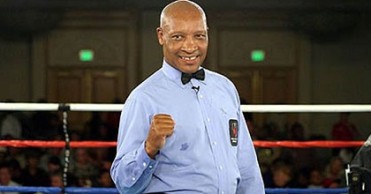
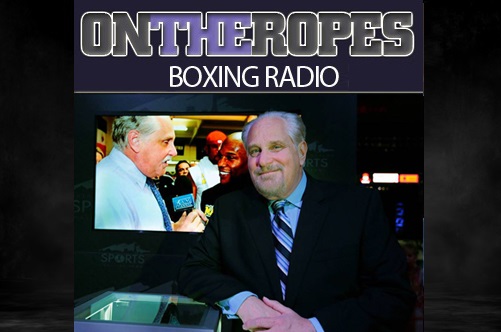
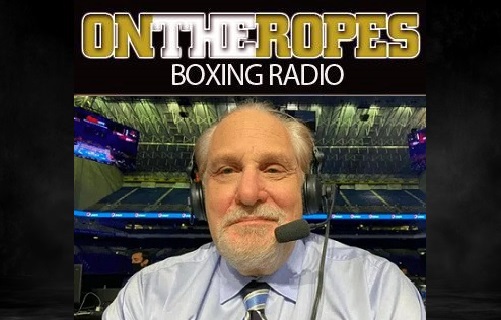
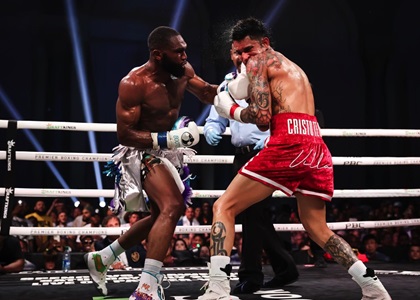
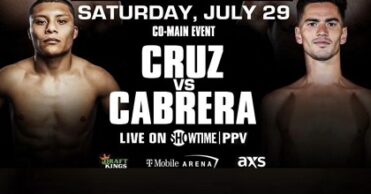
People believe mayweather will win because they believe mayweather will just run and not to fight Pac. and by running Mayweather is very good at.
..Flomo Jr. is quick but not fAst because a fast boxer could throw a lot of punches in seconds with extraordinary leg movements. Flomo Jr. uses his legs to avoid gettin hit but he cant throw punches in bunches just like Manny. I would say Flomo is quick and slick but he isnt fast enough compared to Pacman. On May 2 Flomo Jr. will see what fast means. Flomo is fast in his younger days but he isnt now. People who say Manny is being eaten up by old age are too hilarious because eversince being fast is what makes Manny a dangerous opponent. This is Pacman’s identity and not of Floyd!
mayweather was unbeatable in lesser weight…when he moved to welterweight he’s not fast as he used to be..richard steel was probably referring to mayweather of the past…welterweight is the real deal now..floyd wont be as fast as manny is…he’s one step slower than manny..
we’ll see on may 2….my intuition tells me jr wins easy…
great comment from my dear friend. and love to his daughter who runs his great gym in vegas
What will happen in the fight of the century is that Floydie Jr will quit after absorbing from Manny devastating blows and he will know that very soon he will get KO’d. Because he is too proud to lose by knockout, he will no longer answer the bell in the next round. Referee Steele mark my prediction, ok?
Love to see that on Fight Night, come May 2 it will be the Pacman hands up by the referee winning the 8 round KO over Floyd! You will see speed in all angles, punches from blind corners coming like rain from Pacman which Floyd cannot match!
it’s a boring fight… watch this
https://www.youtube.com/watch?v=3sLE4yGjqZY
One day in the Boxing Gym.
ALI: “I Float like a Butterfly, sting like a Bee!”
MANNY: “I’m Fast like a Tiger, Furious like a Dragon!”
FLOYD: “I Quack like a Duck, run like a Chicken.”
I think Mayweather is actually faster then Pac. Something that will be clear May 2ND